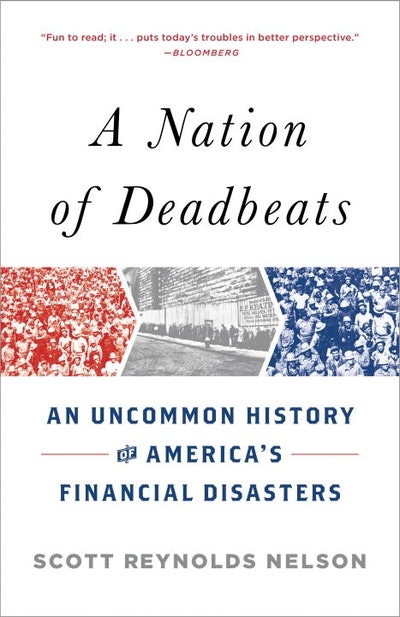- Published: 15 June 2013
- ISBN: 9780307474322
- Imprint: Knopf US
- Format: Paperback
- Pages: 368
- RRP: $35.00
A Nation of Deadbeats
An Uncommon History of America's Financial Disasters
Buy from…
- Published: 15 June 2013
- ISBN: 9780307474322
- Imprint: Knopf US
- Format: Paperback
- Pages: 368
- RRP: $35.00
"Exceptionally readable....[Nelson] has painstakingly extracted the sensational details from the mucky ore of the history of financial crises in the U.S....Well worth reading...larded with entertaining characters and powerful citations." --New York Journal of Books "Nelson presents a good case that the U.S. was founded by bankers who used their insider knowledge and political connections to make lots of money. And their influence hasn't diminished all that much despite having caused dozens of financial crises since.... fun to read; it gleans interesting tidbits from the past and puts today's troubles in better perspective." --Bloomberg

